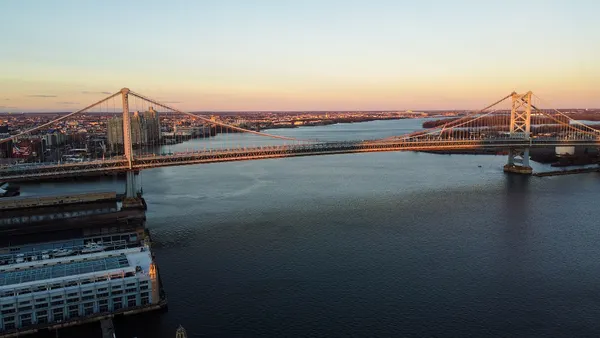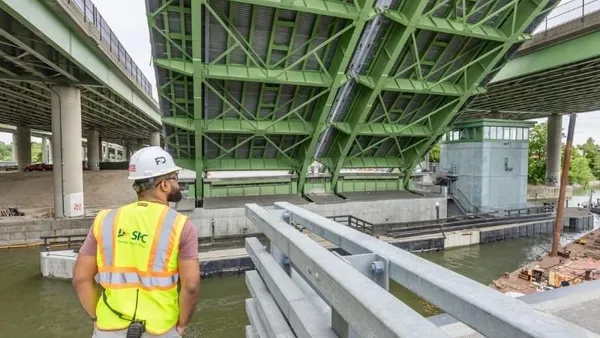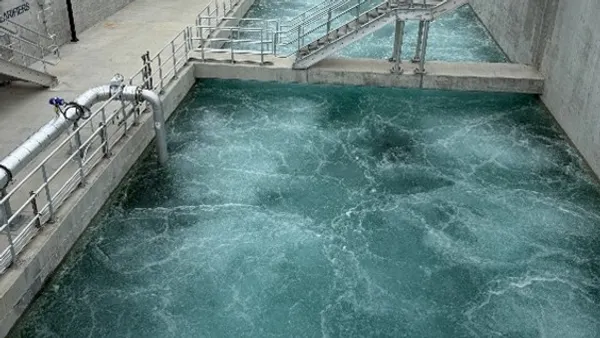Dive Brief:
-
Skanska USA announced on Sept. 30 that it is part of a joint venture — led by heavy civil contractor Stacy and Witbeck — that has just been awarded a $921.8 million contract to build the new 11-mile, Mid-Coast Trolley line in San Diego, an extension of the city's existing light-rail service.
-
The general contracting firm valued its portion of the project at $307.3 million and said that construction is already underway, with completion scheduled for 2021.
- The trolley will connect San Diego's central Old Town neighborhood to the University City–UC San Diego area to the north. Skanska said the rail system would enable more residents to connect to other trolley lines and to points as far south as the U.S.–Mexico border.
Dive Insight:
Last month, the Federal Transit Administration agreed to fund San Diego's trolley extension with $1.04 billion over a 10-year period from its competitive Capital Investment Grant program. Additionally, a half-cent increase in the regional TransNet sales tax will help pay for the expansion, which has been touted as the area's largest-ever public transit project.
Another recent rail-related win for Skanska is in the sustainability arena. The company announced last week that its $700 million Los Angeles Metro Expo Line Phase 2 (Expo 2) light rail extension earned Envision Platinum certification from the Institute for Sustainable Infrastructure, the most expensive project ever to achieve that status. The Envision program is somewhat comparable to the U.S. Green Building Council's LEED certification and ranks civil infrastructure projects in a series of categories including quality of life and resource allocation. Measures Skanska took to qualify Expo 2 for Envision Platinum include utilizing the local workforce and sourcing regional materials.
Metros are increasingly seeking updated transportation systems, like light rail, as a way to increase access to employment and education opportunities for its residents. This past summer, the U.S. Department of Transportation sponsored the Every Place Counts Design Challenge, whose four winners — Spokane, WA, Minneapolis-St. Paul, Nashville and Philadelphia — received an infrastructure overhaul plan from industry experts. Historically isolated and disadvantaged cities with at least one transportation project underway were eligible. Transportation Secretary Anthony Foxx, who announced the winners, said that the competition provided the opportunity to "rethink some of our nation’s past transportation choices and improve upon them to design a better future."













